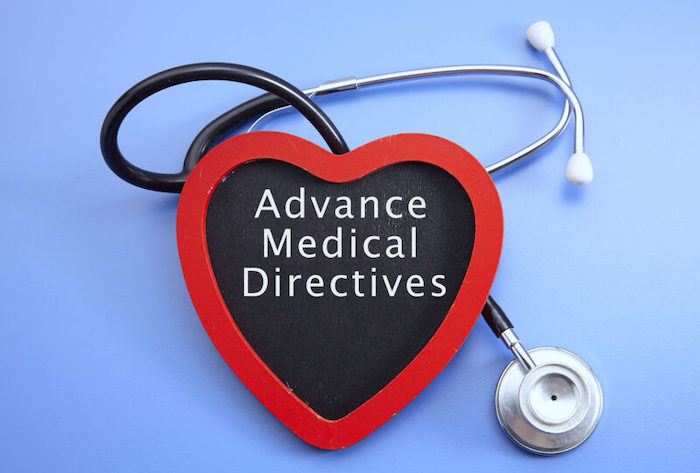— Here’s a start.

by Connie Ducaine
My family member was clear: She wanted her life to end without extreme measures — to go when it was “her time” with no life support, no CPR, no intubation.
Though my family and her spouse knew this and loved her dearly, the reality of letting her go and following her wishes without “doing more” became difficult as her condition progressed. At the time of her death, medical interventions had sustained her life for several years — against her wishes.
Unwanted, aggressive medical care at the end of life can not only rob you of a peaceful death, it can also place an enormous financial and emotional burden on your loved ones. Fortunately, advances in healthcare delivery at end of life, such as hospice and hospital-at-home options, are combining with more candid and open discussions of end-of-life care to reduce the number of Americans who die hooked up to machines in hospitals against their wishes.
But it takes more than industry shifts and education to ensure that you or your loved one have a desired end-of-life experience. If you want to avoid end-of-life hospital stays, some proactivity is required.
1. Know what documentation you need
What if you were in a car accident? How would you consent to, or decline, mechanical breathing intervention? Advance directives — which can include many different types of documentation — are more than just planning for far-off end-of-life scenarios.
An advance directive should account for any scenario in which you are unable to speak for yourself.
An advance directive should account for any scenario in which you are unable to speak for yourself and need a healthcare proxy to be your voice, whether at the end of a long battle with cancer or after being rendered temporarily incapacitated by a skiing accident. Everyone needs such documentation, not just the sick and elderly.
The documents that set out what a hospital, elder care community or other caregiving entity should and shouldn’t do on your behalf can vary by facility and state, and the methods for ensuring they are considered legally binding can also vary.
2. Designate a healthcare proxy and be real about your choice
The legal and healthcare system will decide for you if you don’t designate a healthcare proxy yourself, with your spouse being the default and adult children second. That’s a pretty solid default, but your closest loved ones may not always be the best choice
Ask yourself: Will they be able to let me go after a long life when I’m ready to rest? Yes? Lovely. But what if I’m in a car accident tomorrow and life support is offered? Will it be fair to ask this particular person to focus on such decisions? It’s quite possible. But it may be kinder and more prudent to say, “I love you, and so you’re not the one to make these decisions. I want you to be holding my hand when I take my last breath, not deciding if I should be on life support.”
For single people without children, it is imperative to have a detailed advance directive.
End-of-life decisions are particularly fraught for unmarried people. While the healthcare system does look for legally binding end-of-life wishes documentation, if no such documentation is found, there’s a possibility that a physician would expend unwanted efforts to extend your life. In extreme cases, the hospital ethics board could become involved in decisions you may have wanted to keep within your circle of loved ones. For single people without children, it is imperative to have a detailed advance directive.
3. Use free resources to plan with your family or doctor
Contrary to popular assumption, you don’t necessarily need an attorney to complete an advance care plan — though it may be advisable in specific circumstances. If you do choose to hire support, weigh that cost against the costs of not planning — which can include unplanned stays at nursing homes, costly interventions that may not result in extending life in a positive way, or family disputes over your end-of-life wishes.
Every state has free, downloadable documents for advanced-care planning available for their residents. If you find them challenging to navigate or understand, your physician can also guide you to social workers and other support. The secure online portal. My Living Voice is one example of a free resource that helps simplify the process of documenting your advance directive. It can help you to think through who your proxy should be, to document your preferences for care during a medical crisis or life-extending care, and to make those wishes both legally binding and known to your physicians, your insurance company, your healthcare proxy and your family.
Prioritize discussing an advance directive at the start of your next physician appointment with a simple ask: “I’d like to do an advanced care plan. How should we go about that?”
4. Share your plans
Too frequently we assume our designated healthcare proxy will “just know” that they are the proxy and how you feel about what decisions will need to be made. Too frequently, that simple communication and documentation doesn’t happen. If the role comes as a surprise to them in the midst of a health crisis (or even an anticipated health event), it can cause undue stress on someone you love.
Another common scenario: You have a living will, but it’s in a file in your closet, completely inaccessible to those who need it most, like your physician
Actualizing your end of life wishes requires that your advance directive is documented, communicated and accessible.
Actualizing your end of life wishes requires that your advance directive is documented, communicated and accessible. If required in your state, get it notarized. Communicate its contents with your loved ones and doctor. Provide your loved ones and healthcare providers with copies, both paper and digital if possible. Furthermore, if you have children, make your plans and proxy designation clear to each one of them to save them from agonizing disputes. Consider the right time to have these conversations with your family based on your unique family dynamic and set a time for that discussion.
Not sure how to start the conversation? Print this article and say, “I was reading this, and it made me think. Can you all read it too and then we can talk?” Legally documenting your wishes can provide your loved ones with peace, structure and protection at a time when they might have their head in their hands, saying, “I don’t know what to do.” Give them the strength and confidence that helps them take the actions you want taken.
Complete Article ↪HERE↩!






